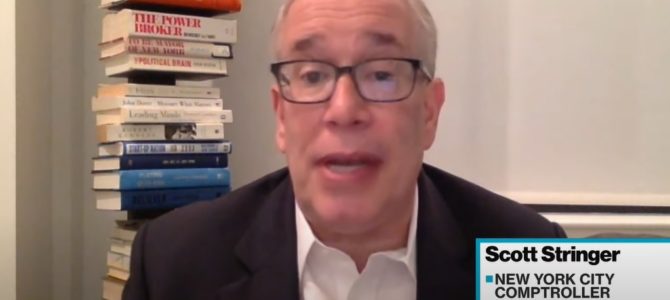New York City Comptroller Scott Stringer warned the Big Apple’s wealthy residents Tuesday they are likely to face higher taxes to cover this year’s $4.2 billion deficit resulting from state and local overspending and incompetence driving away their rich tax base.
While New York Gov. Andrew Cuomo and New York City Mayor Bill de Blasio religiously implement strict lockdowns in response to the novel Wuhan coronavirus amid a historic crime spree suffocating the city, wealthy inhabitants are fleeing in record numbers and taking their tax dollars with them. It’s leaving the crumbling urban empire with massive deficits.
Stringer told Bloomberg the burden is now on those remaining to pay up for their deserting neighbors as the city faces multiple crises at once, exhausting its already debt-laden resources.
“People of great wealth have done great in the city in the last 10 or 20 years. They should be prepared if necessary to step up, to help out as well when that happens,” said Stringer, who announced his candidacy for mayor last week in the city’s 2021 election. “It seems reasonable that people who have great wealth would want to help this city in which they make money.”
Stringer’s Tuesday warning echoes those issued by Cuomo last week telling reporters that if another federal bailout fails to come through, the state would have little choice other than to raise taxes to cover the shortfall that the governor has projected to reach $30 billion in the long-term.
“This will be a hole in the financial plan so large that it will be impossible to fill,” Cuomo told reporters in a conference call, according to an account of the conversation by the New York Post. “What would we do to try to fill it? Taxes, cuts, borrowing, early retirements [of government workers]. All of the above.”
Republican lawmakers in Washington introduced yet another bailout package last week offering $300 billion under the label “coronavirus,” but did not include a specific bailout for state and local governments. Democrats blocked the measure Thursday because they want even more federal deficit spending.








